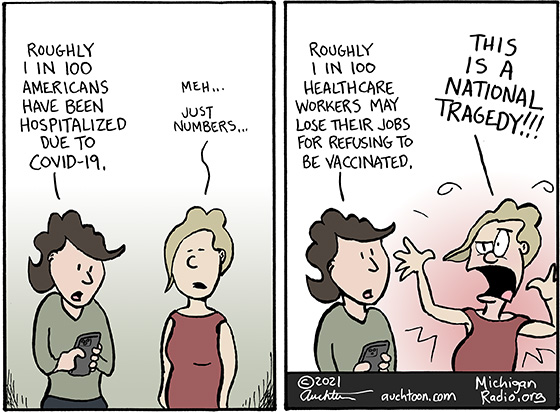Roughly 1 in 100

So many great scenes in the film, Good Will Hunting. One of my favorites (often overlooked) is near the end when Sean (the psychiatrist played by Robin Williams) reconciles with his friend, Jerry (the mathematician played by Stellan Skarsgård). As they leave Sean’s office, they acknowledge their vast differences — Sean, a working class Southie, Jerry, a pretentious academic — and decide to go get a drink. Sean offers to pay, waving a lottery ticket.
Sean: C’mon, this one’s on me. I’ve got the winner right here, pal.
Jerry: Aw…
Sean: Yes sir, this is the one. This is my ticket to paradise.
Jerry: Sean, do you know what the odds are against winning the lottery?
Sean: What, 4 to 1?
Jerry: (laughs) About 70 million to 1.
Sean: Well, I still have a shot.
Of course Sean is well aware that the odds are not 4 to 1. But he throws out that number knowing Jerry knows exactly what the odds are (and to get a laugh).
A headline in the Detroit Free Press this week read: “400 at Henry Ford Health quit over mandate.” About 400 workers have walked off the job at Henry Ford Health System rather than take a required COVID-19 vaccine. Which sounds like a lot and rather harsh. But another 1,900 received exemptions. And this out of a total of 33,000 employees in a system highly responsible for public health. So does leading with “400” tell the real story?
Point is, aside from highly trained mathematicians and self-taught geniuses, we humans are famously not very good with numbers. Well, large numbers. They can be too abstract to truly understand. To read that nearly 700,000 have died in the US from COVID-19 or that over 3 million have been hospitalized, it’s really difficult to, you know, picture it. So whenever possible, we chunk information into manageable sizes. And all the better if those manageable sizes support the narrative we want to believe.
What are the chances that all of you are going to agree with me on this? Oh, I’d say about 110 percent.

